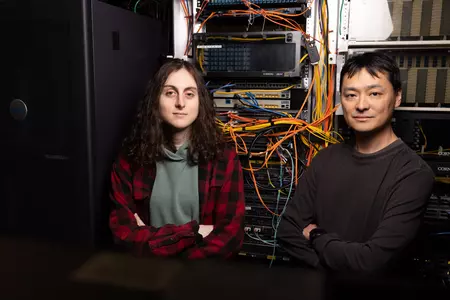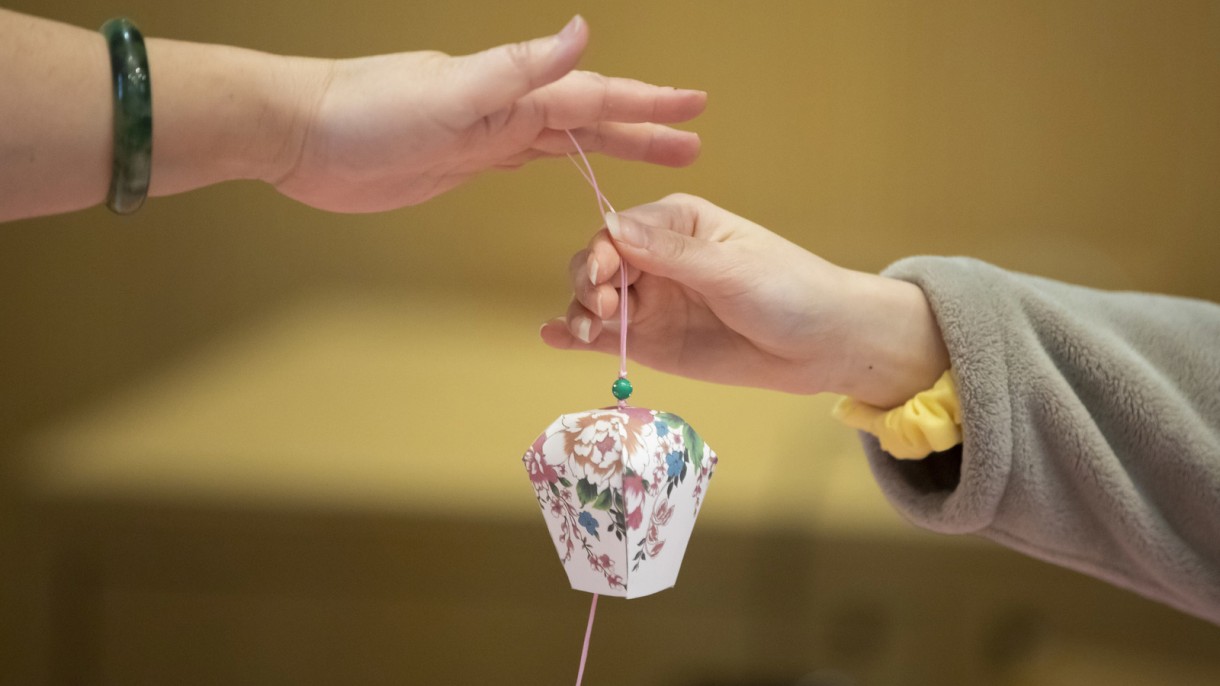Julia Kaeppel ’24 and Prof. David Chiu published their research on database cache management.
University of Puget Sound student Julia Kaeppel ’24 has always been interested in computer programming. As a kid, she was a member of her elementary school robotics team and got hooked on programming in middle school as a pathway toward making video games. Kaeppel’s lifelong interest in operating systems and programming later led to an exciting research opportunity at Puget Sound. As a rising junior, Kaeppel approached Professor of Computer Science David Chiu about the possibility of working on a summer research project He immediately had an idea for an impactful project they could tackle.

“I’ve been working on this database project for over a decade and I had an idea of where I wanted to go next with the research. It was just a matter of finding the right student because it required a unique skill set,” says Chiu. “That Julia is such a strong C programmer with the right skill set and an interest in operating systems and performance was pretty fortuitous.”
Databases often contain immense amounts of raw data. It takes a long time to search through all that data to find a given piece of information, so computers use caches to store previous results for reuse. Caches serve as shortcuts to get at relevant information quickly, but they have limited space. Chiu wanted to find the optimal sequence in which to dispatch the queries as well as the order in which to evict older cached results in an effort to improve query performance. That’s where Kaeppel’s research came in. With funding from a McCormick Summer Research grant, she was able to dive into the problem and spend 10 weeks trying to find a solution.
“Over the summer, we developed a couple of algorithms for reordering bitmap queries and we found that a lot of them didn’t work,” Kaeppel says. “However, we found that ordering queries by size from shortest to longest provided the greatest optimization. There’s an elegant simplicity to it.”
The result is deceptively simple, but could be proven mathematically to maximize the number of times queries could be reused over time. Chiu and Kaeppel described their research in a paper that was accepted for publication at the 10th Association for Computing Machinery (ACM) and Institute of Electrical and Electronics Engineers (IEEE) International Conference on Big Data Computing, Applications, and Technologies, where it won the award for best paper.
“This conference only accepts 25 to 30% of all papers submitted. So, to be accepted and then to win a best paper award is a major accomplishment,” Chiu says. “Julia isn’t a Ph.D. student. She’s an undergrad—and yet her work beat out every other paper at the conference. It’s unprecedented in my research group.”
Kaeppel credits Professor Chiu’s mentorship for helping her develop the tools she needed to tackle the research project—and for opening her eyes to the possibility of doing more research after graduating from Puget Sound.
“It was a great experience and definitely broadened my horizons. Even if I don’t go into academic research, I could see myself pursuing a career working with algorithms and optimizations,” Kaeppel says.
“Julia was a joy to work with. She is dedicated and has an intuition on problem solving that makes her a very natural researcher,” Chiu adds. “When we got a result that didn’t look right, she knew where to dig for answers. That’s not something I would typically expect from an undergrad. Julia was already at that level—and that made all the difference in making this publication possible.”









